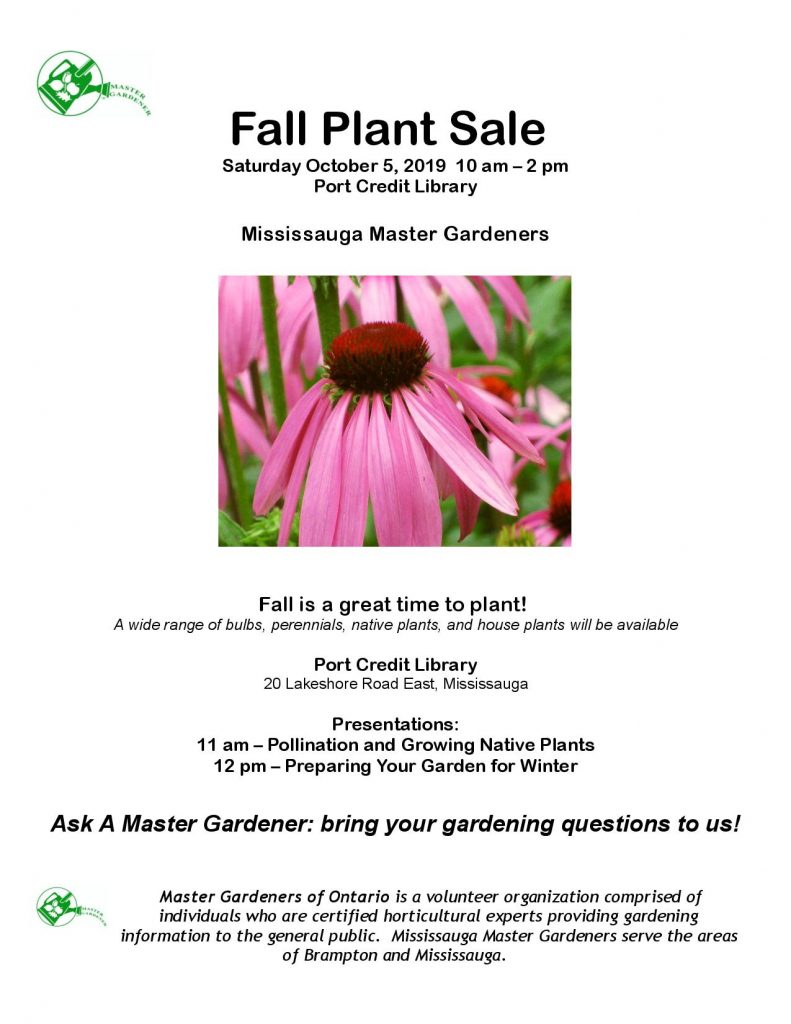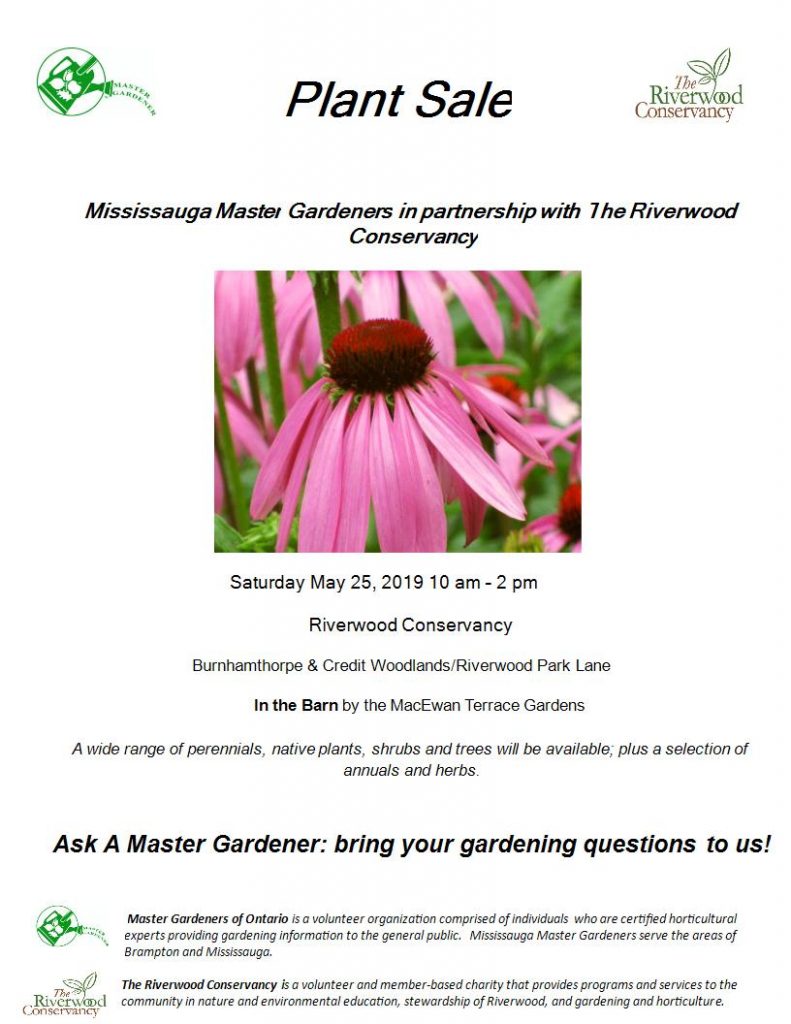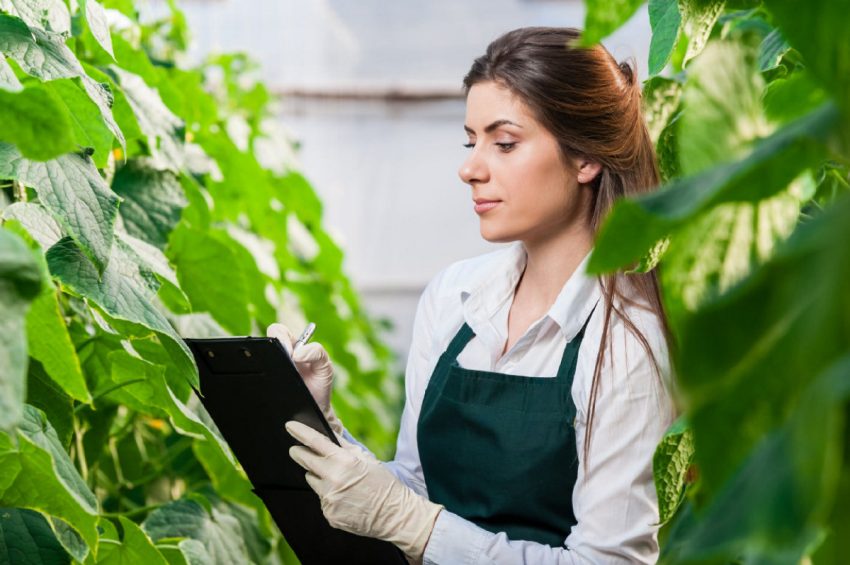
City of Brampton’s Backyard Garden Program Announced
We congratulate Brampton on the new Backyard Garden Program for Brampton residents and we hope that other communities will follow the Flower City’s good example.
Mississauga Master Gardeners’ primary project for 2020 is to foster home vegetable gardens in the tradition of Victory Gardens during WWI & WWII. #VictoryGarden2020 is a way to engage with nature, provide food security, teach kids about gardening and nature, improve soil, benefit the environment and more.
Plus there is nothing like picking your own fresh vegetables just at their peak of ripeness…food doesn’t get more local (or tasty) than that.
Follow MMG posts for advice on what to plant and how to plant your Victory Garden 2020.
Here is more info on the Brampton initiative.
We hope that the City of Mississauga follows this example and creates a home vegetable garden program of our own! And other local communities can do the same.
Media Release
City of Brampton announces first citywide Backyard Garden Program in Canada in response to COVID-19
FOR IMMEDIATE RELEASE
BRAMPTON, ON (April 16, 2020) – Yesterday, the City of Brampton launched the Backyard Garden Program, a new eco-friendly initiative to help support food security in our city, and encourage residents to get active at home during the COVID-19 emergency. The City of Brampton is the first municipality in Canada to launch a citywide initiative to support residents in growing their own gardens in response to COVID-19.
The new Brampton Backyard Garden Program is chaired by City Councillor Doug Whillans, Wards 2 and 6, in partnership with the City’s Parks Maintenance and Forestry division, and will include community partners as required.
With physical distancing measures in effect, this program encourages residents to grow produce and herbs from the comfort of their own homes, and donate their homegrown crops to local food banks and community organizations. In order to ensure food is equally distributed to those in need, a request form will made available for food banks and organizations to complete.
This initiative supports the Mayor’s Social Support Task Force’s focus on food security and reaffirms the City’s priority of being a sustainable Green City.
The new Backyard Garden Program, through which residents can continue to stay active and green, is an extension of the existing Community Gardens program.
Residents can request free supplies (soil and seeds) by emailing BramptonGreenCity@brampton.ca. We will also share tutorials and tips on how to maintain gardens on our website at www.brampton.ca/parks.
With the 50th anniversary of Earth Day just around the corner (Wednesday, April 22), this is the perfect opportunity for residents to contribute to urban agriculture, give back to the community, and help Brampton become a more healthy, resilient, and environmentally sustainable city. Here are some tips to celebrate Earth Day at home. Read more
MMG Spring Plant Sale May 23rd, 2020 is CANCELLED
Sadly we must cancel our MMG SPRING PLANT SALE, originally scheduled for Saturday, May 23rd at Riverwood.
All May events at Riverwood are now cancelled, as well as some events in early June, due to the current pandemic.
We take some comfort in the fact that gardening is NOT cancelled and neither is Spring, so we’ll be busy in our own gardens in the meantime. But we are always available online for helpful advice.
And any of the Master Gardener groups would be happy to answer your gardening questions, just ask!
We are especially interested in promoting a renewal of the idea of Victory Gardens in 2020, as a way to provide food security, encourage healthy outdoor activity that allows for needed physical distancing, to give your kids a fun, educational project, help the environment, and so much more.
Check out our MMG social media for helpful times on how to #GetGrowing this season.
And we are hopeful that our proposed Fall Plant Sale 2020 might still be possible…check back for updates on our planned October event at the Port Credit Library.
Stay safe and healthy, Happy Gardening!
What is a Victory Garden? Why You Should Plant One in 2020

History of Victory Gardens:
Victory gardens, also called war gardens or food gardens for defense, were vegetable, fruit, and herb gardens planted at private residences and public parks in the United States, United Kingdom, Canada, Australia and Germany during World War I and World War II. In the war time, governments encouraged people to plant victory gardens not only to supplement their rations but also to boost morale.
George Washington Carver wrote an agricultural tract and promoted the idea of what he called a “Victory Garden”. They were used along with Rationing Stamps and Cards to reduce pressure on the public food supply. Besides indirectly aiding the war effort, these gardens were also considered a civil “morale booster” in that gardeners could feel empowered by their contribution of labor and rewarded by the produce grown. This made victory gardens a part of daily life on the home front.
Source: Wikipedia //en.wikipedia.org/wiki/Victory_garden
Victory Gardens 2020:
As we write this in March 2020, there is a global “war” being waged against a common enemy, COVID-19, the pandemic virus.
In these troubled times, gardening has a big part to play in the well-being of so many of us. Gardening is one of the few activities that is not cancelled, and it is a valuable outlet in these times of turmoil. But to get the most benefit from our gardens, perhaps we should turn to the practice of creating Victory Gardens once again, and grow some of our own food this season.
Growing your own food is important for so many reasons, with so many benefits:
- Food security: Agriculture will be impacted by COVID-19 in coming months and there will be disruptions and potential shortages of some fresh foods. By planting an edible garden, you’ll be providing your family with a steady supply.
- Fresh fruits and vegetables will likely increase in price. Your garden can even grow organic fruit and vegetables, which will save you money in the long run.
- Gardening is not cancelled! This fresh-air activity is therapeutic and can be practiced with safe outdoor social distancing, even if done in a community garden setting. Gardening improves morale in tough times, and, if you plant them, you get tomatoes!
- Gardening has benefits for the environment and your victory garden will help combat climate change.You can have an edible garden in any space, whether it is a collection of pots of fresh herbs on a windowsill, a grouping of containers on a deck or patio, or a full garden bed on your plot. We can show you how in our series of posts here and on twitter.
- Edible gardens are a great teaching tool for kids. Studies show that children are more likely to eat vegetables that they’ve had a hand in growing, so that is win-win as well! Now that kids are home from school, why not involve them in growing seeds and planting your edible garden?
- Nothing tastes better than the fresh produce that comes from your own garden, where you know exactly what has gone into the final product. And vegetables you grow yourself are likely more nutritious as well.
Follow our series of posts here on our website, on our MMG Facebook and on twitter @MississaugaMGs.
Over the next couple of months, we’ll be posting advice on how to get started, what to plant from seed now & later, how to transplant seedlings, edibles in containers, and more.
If we miss answering your question about #VictoryGarden2020, get in contact with us through our social media contacts or by email at
mississaugamgwebmaster@gmail.com
Mississauga Master Gardeners are here to help with gardening advice.
NB: Sorry, we can’t come over and plant the garden for you, even when social distancing ends!
Let’s #GetGrowing, Everybody!
Mississauga Master Gardener Nominated for Community Award

MMG Jeanne McRight, shown above with Ward One Councillor Stephen Dasko, as she receives her certificate.
“It’s such an honor to be nominated for Mississauga’s Ward One Award of Excellence for Environmental Stewardship,” says Blooming Boulevards founder Jeanne McRight.
Jeanne’s non-profit organization Blooming Boulevards has as its focus pollinator support and community education. “By growing locally indigenous wildflowers on our urban boulevards – normally planted with high-maintenance grass – we are providing food and nesting spaces for our 400 species of native bees. These bee species are declining at precipitous rates, with one species common just a decade ago now the on the endangered list. Loss of habitat is a major reason. It makes sense to replace grass with pollen-laden and nectar-rich flowers that feed butterflies and bees. And along the boulevards, up close and personal, the beautiful streetscapes feed our souls.” Blooming Boulevards got its start in early 2019, but its outreach program has already made its mark with several residential pollinator gardens already planted, as well as community pollinator gardens underway in the Small Arms Society lands and, most recently, Spruce Park. Projects well worthy of Environmental Stewardship commendation!
Learn more about Jeanne’s important work here: BloomingBoulevards.org
Volunteers always welcome! Several other Mississauga MGs are lending their support to this great organization.
MMG FALL PLANT SALE Saturday October 5th, 2019 at the Port Credit Library
MISSISSAUGA MASTER GARDENER’s FALL PLANT SALE
Saturday October 5, 2019 10am-2pm at the Port Credit Library
Did you know that fall is a great time to plant? Perennials are able to concentrate on root development during the autumn as above ground growth slows.
So join us on Saturday October 5th at the Port Credit Library to get some new plants for your garden. Opportunity all day to have your garden questions answered by the experts. Spring bulbs (to plant this fall) will be for sale as well.
Presentations:
11 am – Pollination and Growing Native Plants
12 pm – Preparing Your Garden for Winter
See you there!

Come on Down to CNE 2019, Master Gardeners Advice Clinic

The Canadian National Exhibition 2019 runs from August 16 to Sept 2, including Labour Day Monday.
Master Gardeners from all over the GTA will be on hand at Heritage Court at the Master Gardener’s booth throughout the event. Find us near the flower show.
Bring your gardening questions along; our MG volunteers are ready and willing to offer our expert advice.
See you there!
MMG June Outing to Whistling Gardens
 MMGs enjoyed a great outing to Whistling Gardens this past weekend. It was cool & grey out, but the gardens made up for it with great displays of colourful peonies, well over 1000 varieties!
MMGs enjoyed a great outing to Whistling Gardens this past weekend. It was cool & grey out, but the gardens made up for it with great displays of colourful peonies, well over 1000 varieties!
Owner Darren Heimbecker gave us a guided tour of his botanical treasures, accompanied by Leggo, his 6 month old puppy. (Leggo wasn’t as interested in the horticultural detail as we were.) But MMGs thoroughly appreciated the collection of rare conifers, native Carolinian trees and unusual ornamental plants.
It was a great outing and we highly recommend visiting Whistling Gardens with your garden group. A unique, must-see collection for any plant lover. Group tours welcome; guided tours available and well worth it!
For more info: www.whistlinggardens.ca









PLANT SALE @ RIVERWOOD, SATURDAY MAY 25th, 2019
Join us on Saturday, May 25th at Riverwood for our annual
MMG SPRING PLANT SALE
10 am to 2 pm: Come early for the best selection.

MMG SPRING PLANT SALE …. Saturday, May 26th 2018 … 10 am to 2 pm
Master Gardener and local horticultural society plant sales are an excellent way to acquire more plants for your garden at very reasonable prices. These plants are tried and true for local growing conditions.
MGs will be on hand to answer your garden questions and chat about any garden issues, so bring your questions along.
We’d be happy to discuss plant choices with you, best locations for your plants and how to take care of your plant purchases.

MG TECHNICAL UPDATE, JAN 13, 2018
TORONTO MASTER GARDENERS present their 2018 Technical Update: “Growing Food from Around the World”
@ The Toronto Botanical Garden
Speakers for the day include:
Dena Jackson ▪ Toronto comedian & MC ▪ A Light-hearted Look at Growing Food from Around the World
Conrad Richter ▪ President of Richters Herbs ▪ Welcoming
Migrant Herbs to our Gardens
Villiam Zvalo ▪ research scientist, Vineland Research Station ▪ New Plants in Familiar Places…the Science
Ken Brown ▪ horticulturist, writer & home gardener ▪ Down to Earth Solutions for Growing Unusual Edibles
Saturday, January 13, 2018 ▪ 8:30 am Registration & Coffee ▪ 12 noon Lunch ▪ 4:00 pm Wrap-Up
Tickets $45 on Eventbrite
REGISTER HERE://www.eventbrite.com/e/toronto-master-gardeners-technical-update-2018-tickets-37914027878?%20discount=MGOI2018
Source: Toronto Master Gardeners ▪ Technical Update 2018 Tickets, Sat, Jan 13, 2018 at 8:30 AM | Eventbrite
Master Gardeners are in a class of their own: Mark Cullen | Toronto Star column
When it comes to cultivating passion, energy and talent, Canada’s Master Gardeners are standouts.
Master Gardeners are dedicated to the art and science of gardening. And, with their generosity of knowledge and time — on public garden tours, at local horticulture societies, at small shows and big ones such as Canada Blooms and in various online forums — they help sustain a broader community of Canadian gardeners.
The term, or title, Master Gardener is not one that is simply pulled out of the air — or the soil. The real dirt:
In the early 1970s, Washington State University developed the concept that volunteers could get horticulture training they would then share with their communities. The title Master Gardener was borrowed from Germany, where the highest title for horticulture was “Gartenmeister,” which translated to Master Gardener.
Journey North: As the Master Gardener program began to sweep across the U.S. in the early 1970s, Dave Omrod, a plant pathologist in British Columbia was taking note of a problem north of the border: garden centre staff were often ill-equipped with the necessary knowledge to advise backyard gardeners. Omrod joined Bill Peters, a B.C. horticulture specialist, to adapt the Washington State U. curriculum to their west-coast province. They started with a six-week course for willing volunteers. It was an instant success.
With help from a handful of universities and provincial agriculture ministries, the program moved its way across Canada throughout the 1980s.
During the 1990s, provincial governments gradually withdrew financial support, which led to the Master Gardener programs becoming established through independent not-for-profits.

Becoming a Master Gardener: There is no shortcut. Achieved through the Master Gardeners of Ontario Inc., the title’s authority is well-earned.
- Future Master Gardeners start with an entry exam and then are interviewed to assess their potential for “public service and volunteerism.” If they pass, they become “Master Gardeners in Training” (MGiT).
- Once a MGiT, they must do 30 hours of annual public service and attend a minimum number of monthly meetings. Plus, there’s an educational component that can take up to three years and ends with a comprehensive exam for certification.
- While a handful of universities offer Master Gardener Certificate programs, regional chapters often have more-affordable self-study options.
- All Master Gardeners pay a small annual fee to support the ongoing activities of the organization.
Why become a Master Gardener? To borrow an old advertising slogan from American Express: It has its privileges. Those include access to technical updates with industry experts. As well, the designation provides access to a group of passionate, community-minded people with a common interest.

Where to find them: Master Gardeners are often present wherever gardening touches our lives:
- Doing speaking engagements at local horticulture or service clubs.
- At botanical and display gardens across Canada, where they share both their expertise and physical labour skills.
- Online, where they offer rich resources and answer your questions. Or over the phone, if you prefer the analog approach.
- Look up a seed exchange or a plant sale, where Master Gardeners are often the driving force.
- Schools invite Master Gardeners to take part in the teaching curriculum.
- Townships often call upon Master Gardeners when looking for advice about green initiatives in their communities.
In countless and often invisible ways, Master Gardeners contribute much to the gardening community at large, elevating both our appreciation and knowledge of horticulture over the years. You could call them the superheroes in our midst
Source: Master Gardeners are in a class of their own: Mark and Ben Cullen | Toronto Star


 MMGs enjoyed a great outing to Whistling Gardens this past weekend. It was cool & grey out, but the gardens made up for it with great displays of colourful peonies, well over 1000 varieties!
MMGs enjoyed a great outing to Whistling Gardens this past weekend. It was cool & grey out, but the gardens made up for it with great displays of colourful peonies, well over 1000 varieties!